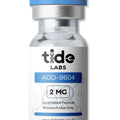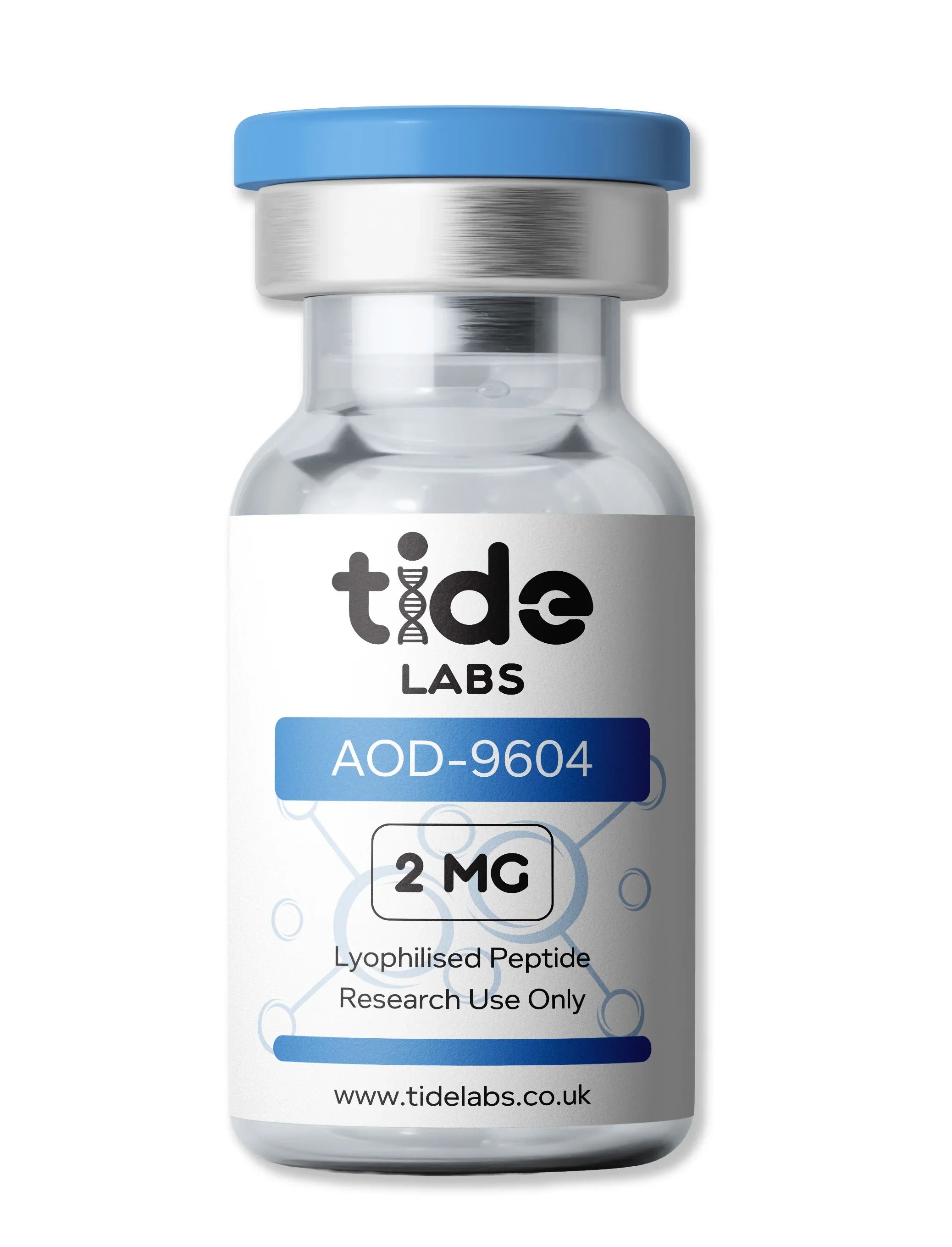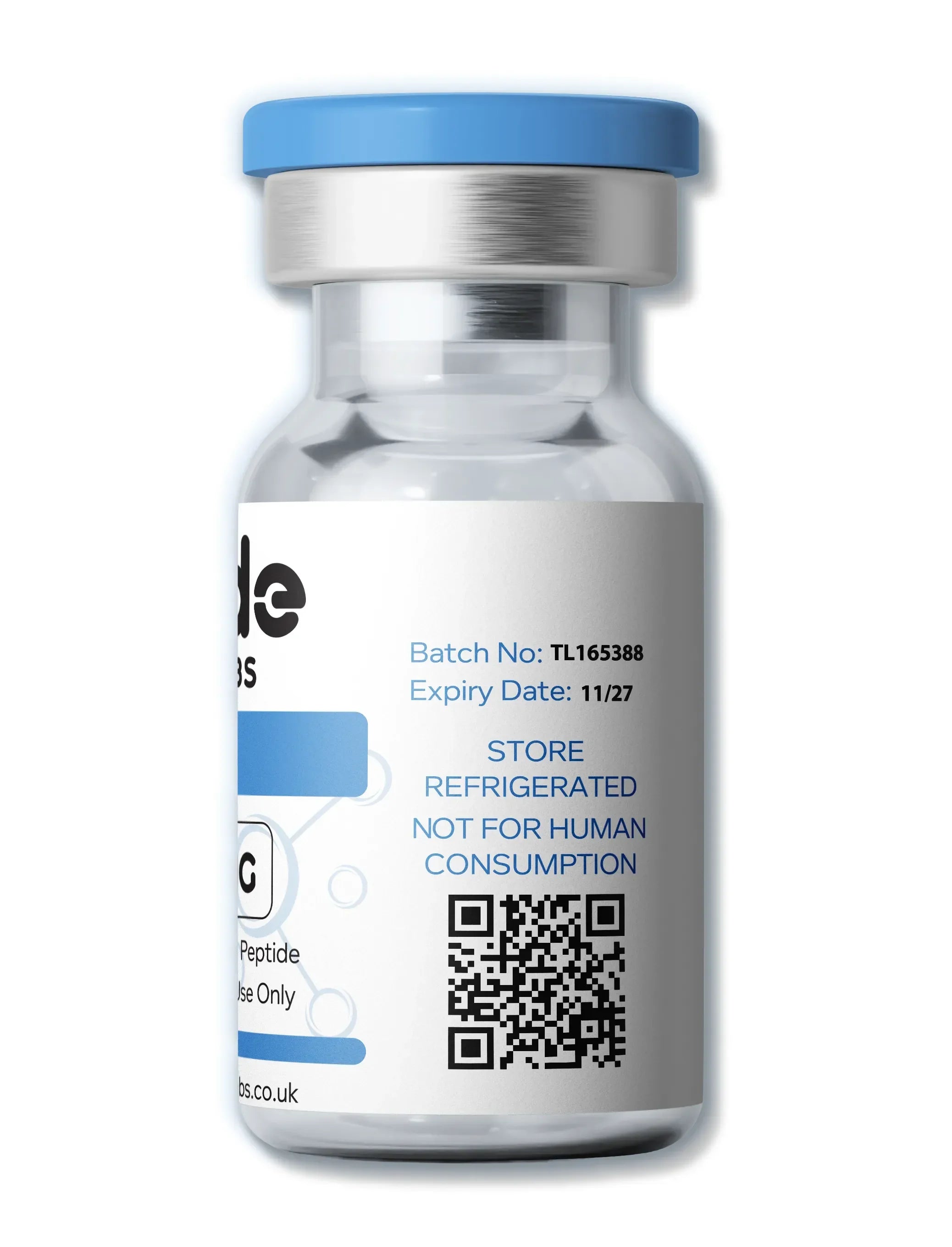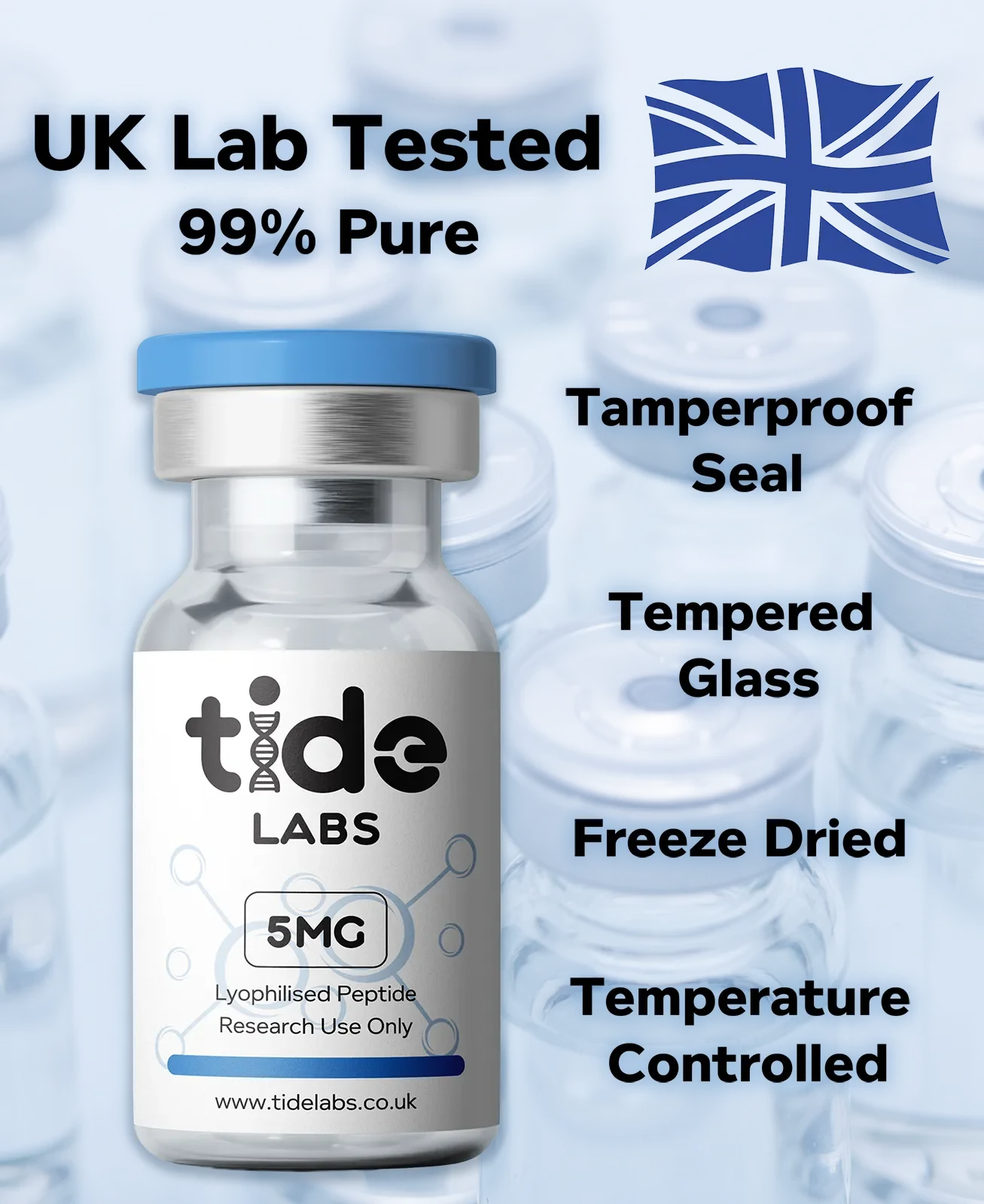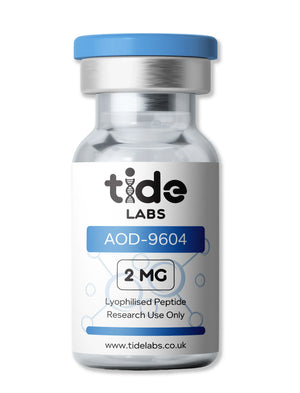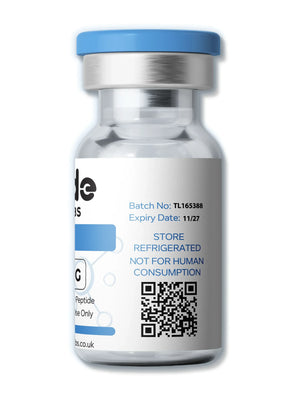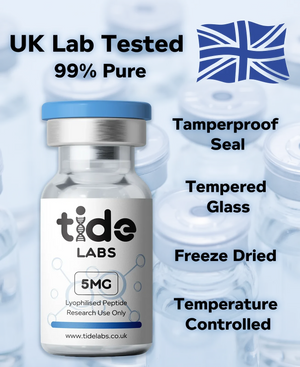AOD-9604 2mg
AOD-9604 is a research peptide derived from the human growth hormone (HGH) sequence, specifically the fragment 176–191. Unlike full-length HGH, AOD-9604 has been designed and studied for its potential effects on fat metabolism without impacting blood sugar or growth activity. Because of this unique profile, it has become a peptide of high interest within metabolic and obesity-related research.
Area of Interest
Laboratory and preclinical studies have investigated AOD-9604 in the following contexts:
- Fat Metabolism: Studied for its role in stimulating lipolysis (the breakdown of stored fat) and inhibiting lipogenesis (the formation of new fat tissue).
- Weight Management Research: Investigated as a potential aid in obesity and metabolic disorder models, with some studies showing reductions in body fat accumulation.
- Cartilage & Joint Research: Early research suggests possible protective effects on cartilage, making it of interest in osteoarthritis studies.
- Safety Profile: Unlike HGH, studies suggest AOD-9604 does not raise IGF-1 levels or stimulate unwanted cell growth, a key distinction in research safety considerations.
Because of these unique attributes, AOD-9604 is often regarded as one of the more promising peptides under investigation for metabolic and regenerative science.
Technical Information
- Chemical Name: AOD-9604 (Fragment 176–191 of Human Growth Hormone)
- Synonyms: HGH Fragment 176-191, AOD9604
- Molecular Formula: C₇₈H₁₂₃N₂₃O₂₃S₂
- Molecular Weight: ~1815 g/mol
- Sequence (Amino Acid): Tyr-Leu-Arg-Ile-Val-Gln-Cys-Arg-Ser-Val-Gly-Ser-Cys-Gly-Phe
- CAS Number: 221231-10-3
- Peptide Classification: Synthetic peptide fragment derived from human growth hormone (HGH)
Storage Guidelines
- Lyophilized peptide is stable at room temperature for short periods.
- For long-term storage, keep at −20°C or below.
-
Once reconstituted, store at 2–8 °C. Effective use depends on the solution used.
Solubility
Soluble in sterile water, acetic acid, or other aqueous buffers depending on purity and modifications.
References
- Heffernan, M., Thornton, K., et al. (2001). “AOD9604, a novel fragment of human growth hormone, reduces body fat in obese Zucker rats.” International Journal of Obesity, 25, 1789–1795. https://doi.org/10.1038/sj.ijo.0801820
- Ng, F. M., et al. (2000). “Anti-obesity effect of a synthetic fragment of human growth hormone.” Obesity Research, 8(3), 309–315. https://doi.org/10.1038/oby.2000.37
- Ng, F. M., et al. (2003). “Safety and tolerability of AOD9604, a novel anti-obesity drug based on human growth hormone.” Journal of Endocrinological Investigation, 26(9), 838–846. https://doi.org/10.1007/BF03345235
Certificate of Analysis (COA): Available here
